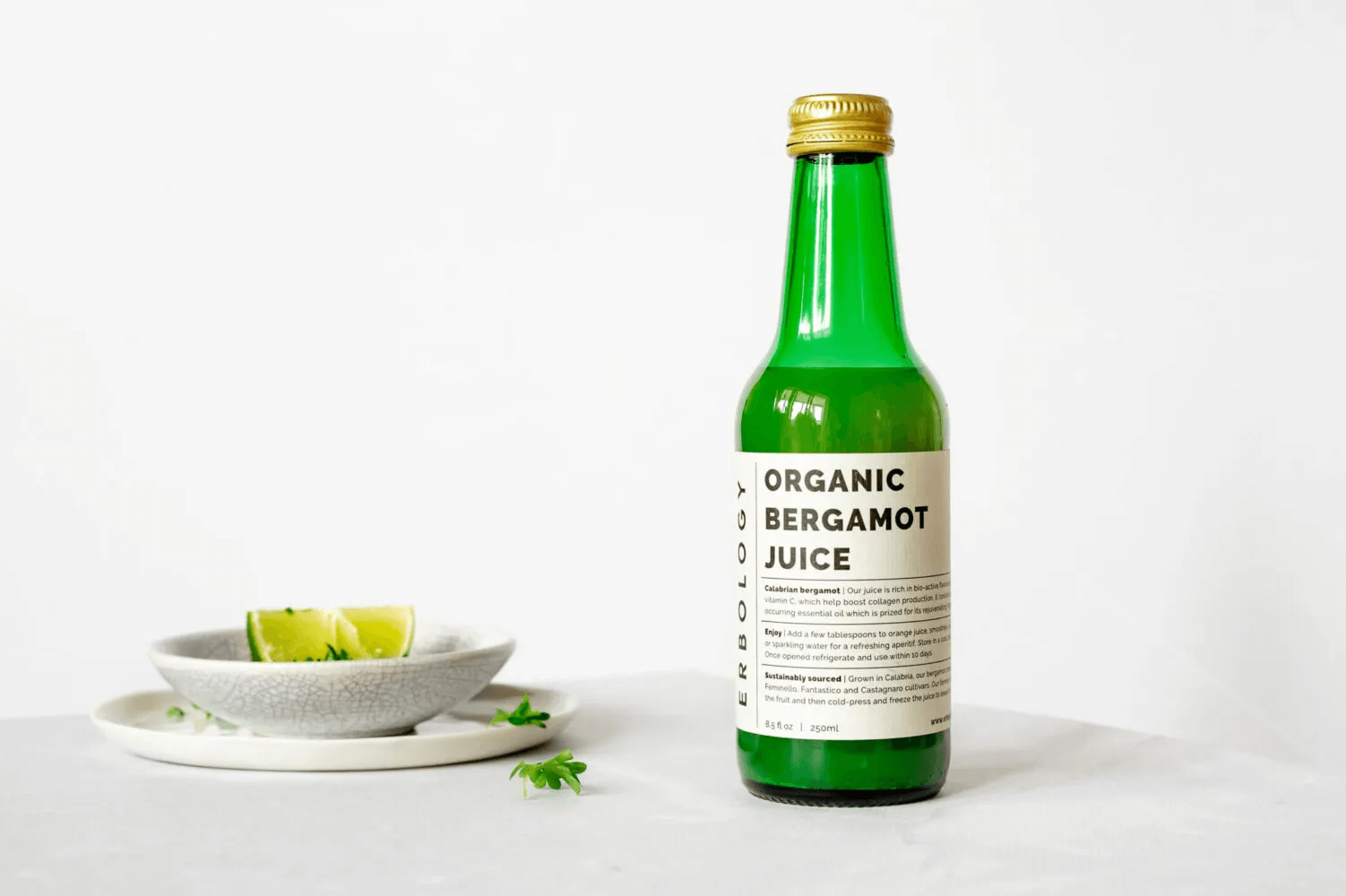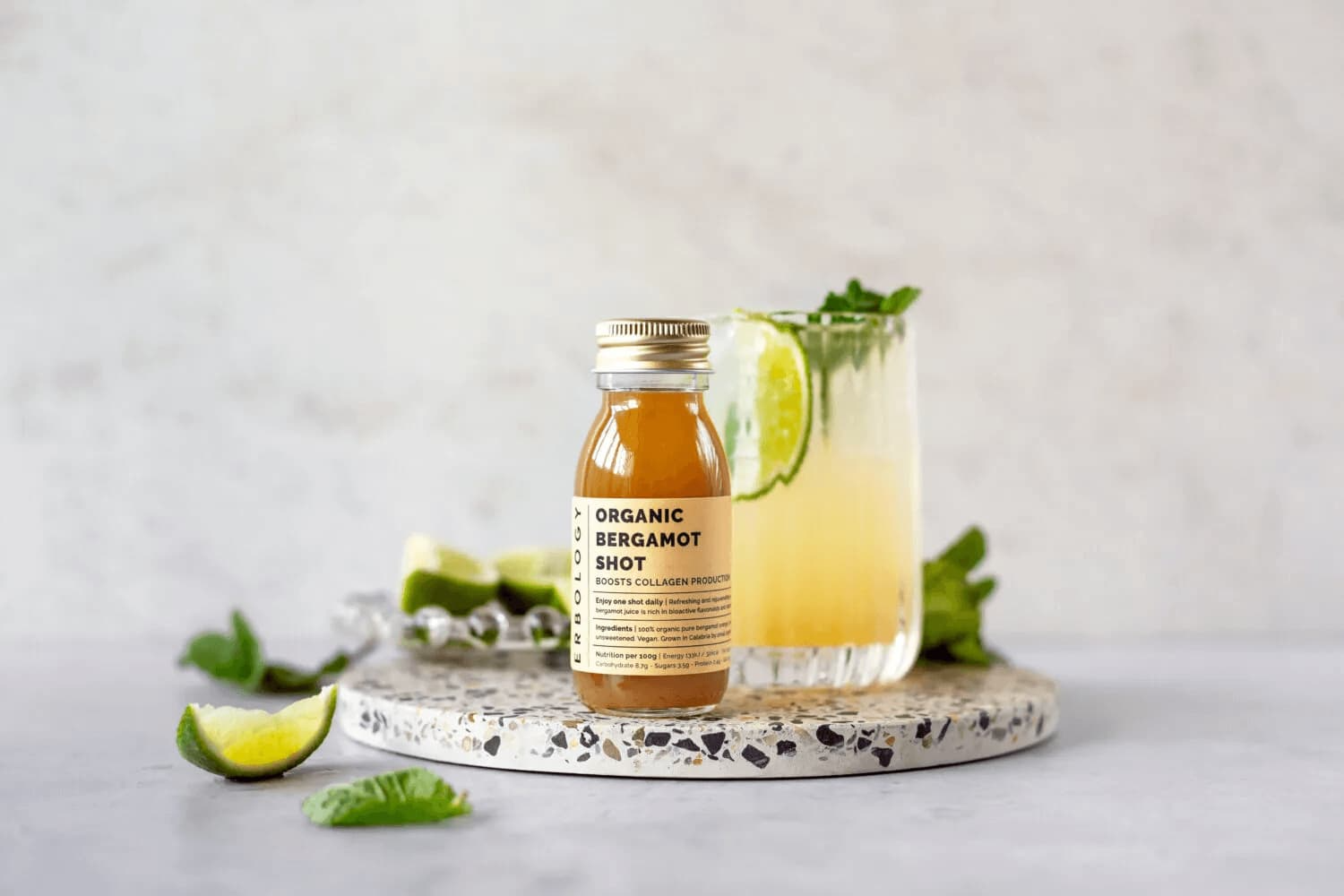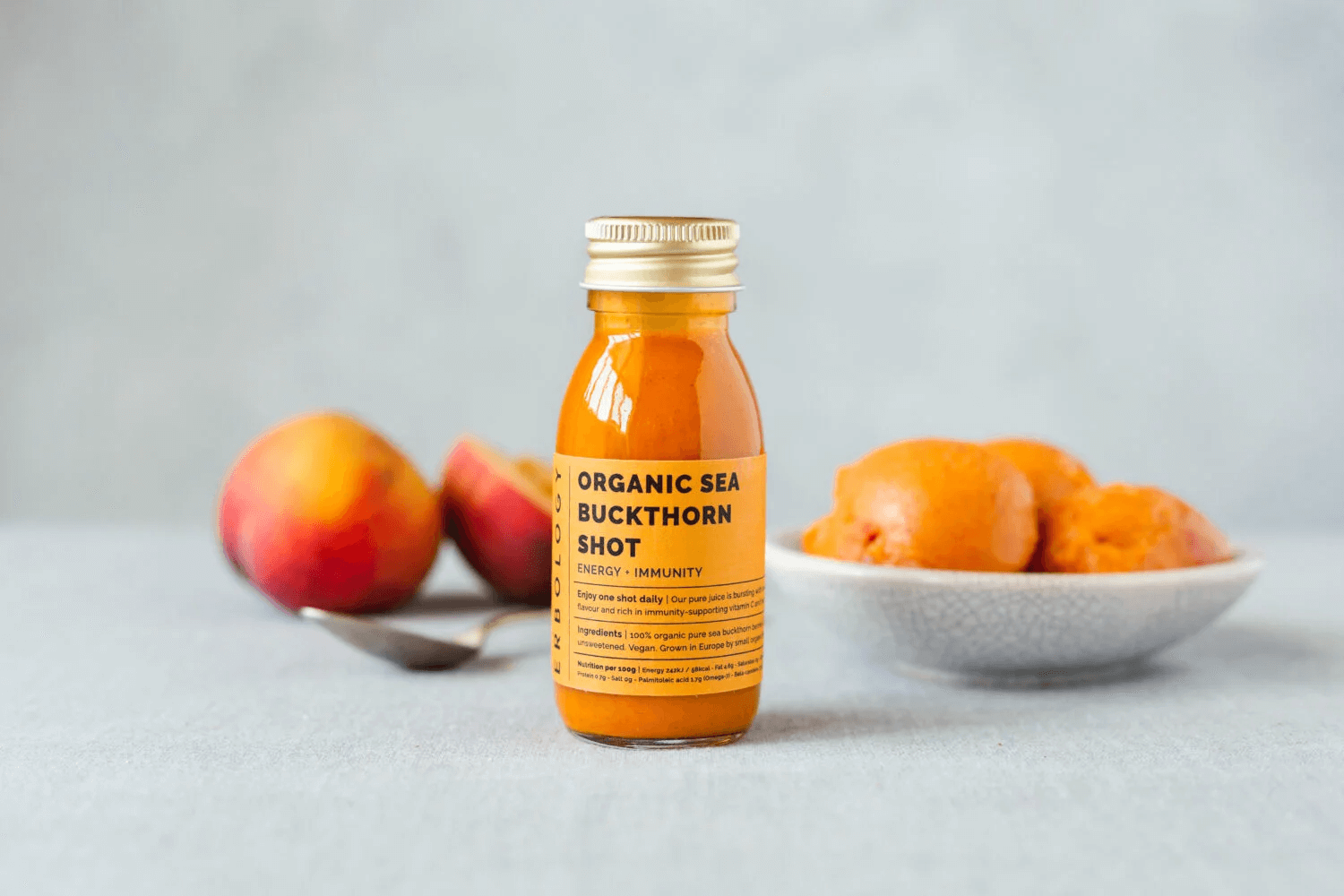17 Feb 2022
Does vitamin C help acne?
What is acne?
Acne vulgaris is a fairly common skin condition that affects most of us at some point throughout our lives. It involves blockage and/or inflammation of pilosebaceous units ( i.e. hair follicles and their sebaceous - oil producing - glands).(1)
For many people who develop this condition, it often begins at puberty and during teenage years, for others however the onset can take place in adulthood.
Acne appears as spots on the skin’s surface, accompanied by oil production, redness and sometimes pain. Most people with acne develop the condition on their face, over half of people with acne have it on their back, and about 15% of people with acne have it on their chest.(2)
There are multiple types of spots caused by acne that can appear on the skin, from blackheads to whiteheads to the most severe type: cysts. These are large lumps that, if left untreated, can increase the risk of permanent scars.
Acne can range from mild to severe. It’s important to understand what type of acne affects an individual in order to treat it. If your acne is mild, speaking to your pharmacist for some over the counter treatments may be enough. However if you feel that your condition is more severe and/or causing you psychological distress, see your GP for advice and support.
What causes acne?
There are several causes of acne which can vary between individuals. Family history is a major determinant of whether or not you will develop acne in your life, if either one of your parents had acne it is more likely that you will also be affected by it.
Hormones are one of the main factors which explain why most people first develop acne during their teenage years. During puberty, our bodies produce hormones called androgens which enlarge our skin’s oil glands which can subsequently clog our pores and lead to acne.
However, acne can appear at any age and start before puberty. About 1 in 5 newborns develop neonatal acne in the first month of life. Some children develop a form of acne called infantile acne between 3 and 6 months of age which can cause permanent scars, however this is rare.(3)
Unfortunately, acne is increasingly common in women over the age of 25 who developed acne with puberty and continue to be affected by it as adults.
For some of us, acne can worsen under stress, when we get insufficient sleep, eat certain foods or use certain products on our skin.
Fortunately, with today’s medical advances and resources, everyone can get help for their acne concerns with the help of an experienced health professional.
![]()
What are the main treatments?
Depending on the causes and the severity of your acne, there are several treatments available in western medicine to treat this condition if you choose to follow this path. Some people also choose to focus on their diet in order to improve their skin. One approach does not exclude the other and you can also choose to follow one or both depending on your needs and preferences.
It often takes months before any improvements are seen and there are no overnight cures for acne, but with the appropriate treatment it is possible to significantly improve symptoms over time.
For very mild acne, over the counter creams and gels may be sufficient to clear up spots. Talk to your pharmacist who can advise the best option for you. If your acne is moderate or more severe, the first step is talking to your GP to find the most appropriate care plan tailored to your needs. You may be referred to a dermatologist if required.
GPs and specialists can prescribe medicines that address acne in different ways, from topical creams such as retinoids to antibiotics, the oral contraceptive pill and for the most severe cases: isotretinoin.
Aside from medication, there are also some non-medical treatments including photodynamic therapy. This consists of applying light to the skin in order to destroy abnormal cells.(4)
In addition, some people use chemical peels which leads to skin shedding and new skin generation. It must be noted that these non-pharmaceutical treatments may not be as effective and are not necessarily carried out by a healthcare professional.
How is vitamin C linked to acne?
Vitamin C (also known as ascorbic acid) is a water-soluble vitamin. It dissolves in water but is not stored in the body, therefore it must be taken daily through food consumption. This powerful antioxidant is naturally present in many fruits and vegetables.(5)
Normal skin actually contains large amounts of vitamin C, which supports collagen production and provides antioxidant protection against harmful UV rays. Vitamin C also plays an important role in wound healing.(6)
Collagen, a protein naturally found in connective tissue, is found throughout the body and namely in skin. While the science is clear on the role of vitamin C in collagen production, the specific link between vitamin C and acne requires further investigation.(6)
A recent literature review studied the relationship between acne and intake of certain dietary nutrients. It was found that among other vitamins and minerals, vitamin C was shown to have a positive effect in the treatment of acne.(7)
The researchers found that vitamin C shows anti-inflammatory effects, wound healing and anti-hyperpigmentation properties. Notably vitamin C appeared more effective as a topical treatment as opposed to oral intake.(7)
![]()
Can taking vitamin C help treat acne?
The relationship between diet and acne has long been discussed and the literature is somewhat conflicting regarding the precise effects of diet on acne.
However, there is evidence to suggest that certain dietary patterns and habits may play a role in the development, duration and severity of acne vulgaris.
A systematic review spanning the past 10 years of research has shown that certain foods are “acne-protective”, specifically fruits and vegetables. These foods contain a myriad of vitamins and minerals that are beneficial for our health, so it is not surprising that they may also positively influence acne vulgaris.(8)
In addition, vitamin C may assist with wound healing. So this may potentially benefit the appearance of acne wounds, however this requires further investigation.(6)
Should I start taking vitamin C to treat acne?
There are several treatments available to treat acne which can be discussed with your pharmacist or GP..
Whilst vitamin C is beneficial for many aspects of our health, there is not enough evidence to suggest that oral intake of vitamin C is an effective treatment for acne. However, vitamin C is an essential part of our diet so it is definitely recommended for maintaining overall health.
Naturally occurring vitamin C in food
Fruits and vegetables are the best natural sources of vitamin C. Citrus fruits and strawberries, tomatoes and cruciferous vegetables are some of the highest sources of this powerful antioxidant.(9)
Vitamin C is also an incredible nutrient to combine with iron found in plant-foods in order to increase iron absorption! Given that we absorb iron from plants less efficiently than iron from animal products, a little help from vitamin C can boost how much our bodies absorb.
Try adding a splash of lemon juice or some bell peppers to a baby spinach salad to enhance nutrient absorption. Delicious and nutritious.
Bergamot, a fragrant Italian citrus fruit, is a great source of vitamin C. Bergamot juice is a refreshing and healthy way to get vitamin C into your diet!
Sea buckthorn is another great source of this antioxidant which provides a refreshing citrus taste.
For most people, following a balanced and varied diet should provide all their vitamin C requirements. Adults aged 19 to 64 require 40mg of vitamin C per day. For reference, 1 medium orange provides 70mg of vitamin C.(10)
Given that vitamin C is a water-soluble vitamin, we cannot store it in the body. Therefore, it must taken daily through foods in the diet.
It is unlikely you can take too much vitamin C through diet alone. However, it can be possible to overdose on vitamin C supplements. Taking large amounts of 1000mg per day can lead to unwanted symptoms such as stomach pain, diarrhoea and flatulence.(11)
Related reading
undefined

Organic Bergamot Juice

Organic Bergamot Shots

Organic Sea Buckthorn Juice
